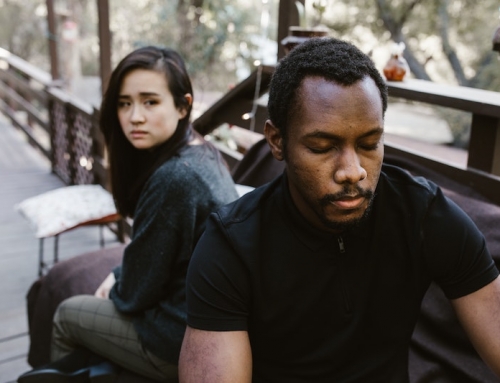Personal relationship have changed over time. When it comes to relationships, some things change and some things stay the same. What has done both over the 77 years since the end of WWII is relationships and marriage. In the years before WWII, relationships were defined a certain way,and then everything changed. From the start of the war through the end of it, marriages and relationships began to evolve as society recovered from the rigors and austerity of the war. As humans do, people still fell in love, they still got married, and had children. From then until now, relationships have continued to evolve.
As more opportunities came for women, including birth control, employment opportunities, and socio-economic changes, relationships changed, and continue to do so. We’re going to take a look at how relationships have evolved over the subsequent generations, including Boomers, Gen X. Gen Y and Gen Z. Gen A, or the “Alpha” generation are too young now (an average age of 10) to be discussing relationships and marriage. So let’s go back and take a look at how the evolution of a personal relationship has changed the face of marriage, childbearing and relationships over the generations.
Boomers 1946-1964
It’s been over 70 years since the end of WWII, and the onset of the famous Baby Boom. As soldiers returned from the war, and to their homes and spouses, they made babies. Lots and lots of babies. As A result of this, 78.3 million Americans were born in this time span. They saw the examples of their parents and did their best to create their own relationships with an independent spirit and plans to do things their own way. They got married at age 23-25.
Baby boomers had a 45% divorce rate compared to the pre-war rate of 22%. Many of them were the traditional marriage or personal relationship where the man was the breadwinner and the woman kept the house and tended the children, looked pretty for the boss, and had limited opportunities to do much more than be a homemaker and housewife.
The children of the Boomers were children of divorce in many cases, and when they began to form their own relationships they had to evolve and grow so as not to repeat the mistakes of their parents and determined to forge their own path.
Gen X 1965-1980
For Generation X, as well as the end of the Boomer generation, the advent of birth control meant that women had more control over when they would have children, and opportunities for women were expanded. The Equal Rights Amendment for women was ratified in 1972, and Roe Vs. Wade in 1973. Women could enter the workplace, receive higher education, own and run their own businesses. As a result, marriage dynamics changed once again.
Gen X looked upon a personal relationship more as a partnership, and women saw themselves as so much more than merely “trophy wives.” They became more educated, married later, and took longer to choose a mate. In this generation, the divorce rate fell to 35%.”
As the world changed, the dynamics of marriage changed as well. Relationships evolved and became more about working together, being evenly yoked in pursuit of their couple dreams. Children were planned more often and couples were happier overall than their parents were.They waited to marry until they were between 32-35, not willing to partner up in a serious relationship until they had looked at all their options.
Gen Y or Millennials 1981-1994
Gen Y is waiting to marry as well. The average age for Millennials to wed is 28-30 years. They want to live with their partners and may not even choose to marry. In addition, many (3 in 5) Millennials are choosing not to have children at all. They want to live with their partners, enjoy their love and life, and don’t really want to bring new life into this crazy and chaotic world we’re living in. Both partners of Millennial relationships are largely focused on personal fulfillment, education and career.
Don’t be discouraged. There are still plenty of Millennials who are having children and enjoying parenthood in addition to career and home. A personal relationship for Millennials are about striking a balance in work/life/parenthood and personal growth. They work hard on their relationships, and if they do decide to marry, they mostly stay married. The divorce rate amongst Millennials is down to 26%; the lowest since before WWII.
Gen Z 1997 -2012
The children of Millennials are known as Gen Z, or the “Zoomers.” Zoomers divorce rate is even lower than the previous generation, and many of these “kids” are choosing not to become parents. They are far too focused on their careers and education. 40% of Gen Z are choosing to have children while remaining unmarried. Statistics like teen births and unwanted pregnacy and divorce have dropped from the previous generation, by 1 -2 percent.
There are many Gen Z who reject societal norms altogether, and choose to live by their own wants and desires. The rise in “out” people of various gender identities and sexuality becomes increasingly common and acceptable as Gen Z comes into their adulthood. The oldest of this generation is 25 and they continue to forge a distinct path for their choices in relationships, marriage and parenthood. Non-binary, polyamorous, pansexual and asexual people are all finding a place in the society of Gen Z. Relationships have evolved yet again.
While the societal and political climate in America becomes ever more conservative and rigid, there are young people coming up who continue to challenge that rigidity by being even more fluid and tolerant of the evolution of a personal relationship, views about marriage,relationships and parenthood continue to change.
The current generation is being referred to as Gen A, or Alpha. They are the kids born from 2010/12 to 2025 or as yet to be born. The consensus on this generation is that growing up with the Internet and all the tech at their fingertips, they are poised to become the most educated generation to ever come along. Since this generation’s oldest children are only 12 years old, it’s going to be awhile before we have statistics on their choices for relationships, marriage and parenthood. The one thing we do know is that relationships change over time, but one thing does stay the same.
Humans need each other. We need to have partners, lovers and families; however that is going to look in today’s society. Each generation needs to find its way through the mistakes of the past with the hope of the future of the human race and this planet we’re living on. Stay tuned for what your children and grandchildren are doing and will do to change the future for all of the generations to come.









